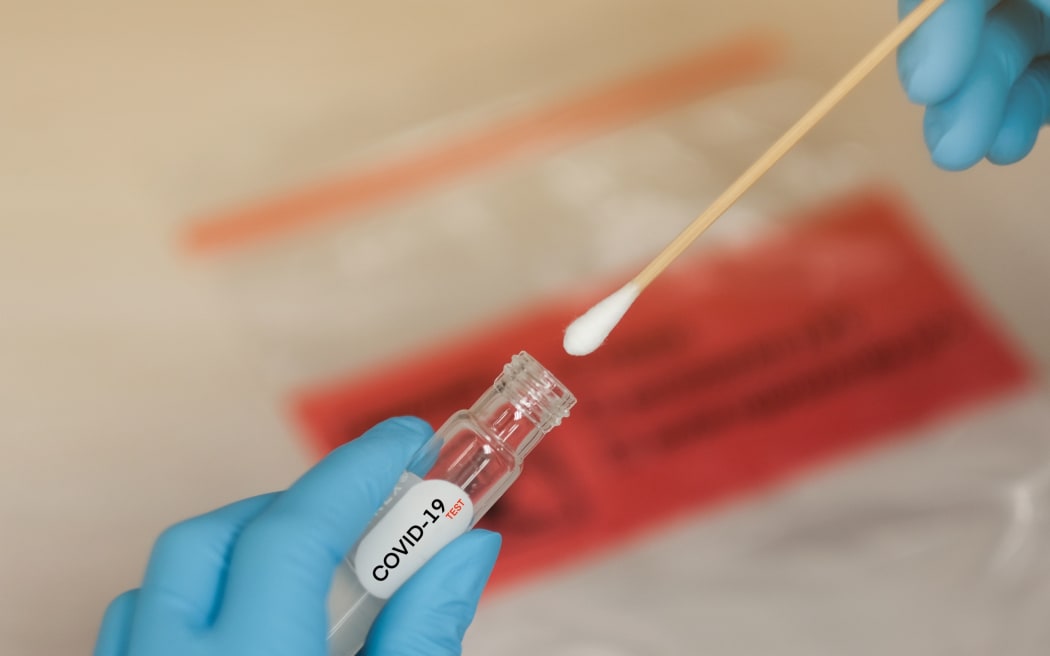Alarm bells are being raised over nurses working in public and private hospitals while also doing extra shifts in quarantine and managed-isolation facilities.
Geneva Healthcare currently holds the contract for nursing services to the 32 managed isolation and quarantine facilities in five regions. District Heath Boards however will be taking over the contract shortly.

Photo: 123RF
The Nurses Society says some of its members have been doing extra work at quarantine facilities while also working their regular jobs and a dedicated workforce based exclusively within these facilities is a safer option that must be pursued.
David Wills, national director of the Nurses Society, has advised its members not to work for more than one employer due to the risk of Covid spread, after nurses approached the organisation. The union has raised its concerns with the three Auckland health boards.
Willis tells Kathyrn Ryan his organisation has been telling members they should advise hospitals that they are also working at managed isolation facilities at the very least, so they can assess the risks.
Nurses working in managed isolation centres are carrying out daily health assessments and dealing with any health problems those people there may have. Some people at these facilities are Covid-positive and nurses working there are also working in emergency departments on other days.
“Our view is ideally these facilities should have dedicated staff, but at the very least the DHBs and other health services, should know when someone is also working in a quarantine facility and at the moment, they don’t.
"They should know in part because it at least means there’s another assessment and another opinion as to whether it’s prudent or not and it also gives some protection to the nurse so that if a problem was to arise and they hadn’t disclosed that they were working in such facilities it would expose them to potential employment and disciplinary actions as well.”
He says the DHBs are due to take over the contracts to manage isolation facilities and this would entail a higher level of surveillance and input from nurse managers. But it should also involve a review of current interchangeable roles of nurses to ensure community transmission of Covid doesn't happen.
“I think we need to move to a situation where there is a dedicated workforce in those facilities. It’s really being super-cautious, a belt and braces approach and we think the belt and braces approach is important, particularly given that we’ve got New Zealand in a unique situation. We have eliminated it. We don’t have community transmission. The government has done a fantastic job, the ministry has done a great job in terms of policy and execution. We don’t want any weak points.”
However, New Zealand Nurses Organisation spokesperson Kate Westen says the body has been aware for some time nurses had been working at border checkpoints and facilities, but that current resources means the current overlap was necessary and practical.
She says there is only a limited pool of experienced skilled nursing staff that can provide this work and it is not uncommon for nurses to work across several employers.
“There are some concerns, but we do need to have some trust in the health professionals, that they are going to do the right thing by the public. There are policies and protocols in place that need to be adhered to. Ideally, if we can have a dedicated workforce that would be optimal but it’s not realistic. So, we need to ensure that the people who are doing this critical work, keeping returning residents safe, keep themselves safe."
She says it is critical that nurses are not forced to do excessive shifts as that is when mistakes occurred and health and safety problems arise. Access to PPE was also essential.
However, Wills says building a dedicated workforce within these facilities is feasible and sensible.
“The need for this is not going to disappear in a few months. It could go on for quite some time. So, it makes sense to have a dedicated workforce and the expertise. And in terms of avoiding the possibility of cross-infection back into another facility.
“And it’s not the only issue we have concern about. Some of these nurses working in the isolated management facilities for example, they don’t work in just one, they work across dozens. They work in different ones each day, so practices in those areas need to be tightened up and I think they will be tightened up now that the DHBs are going to be taking control.”
Health Minister Chris Hipkins says he is aware of the situation and is seeking advice on the matter.

